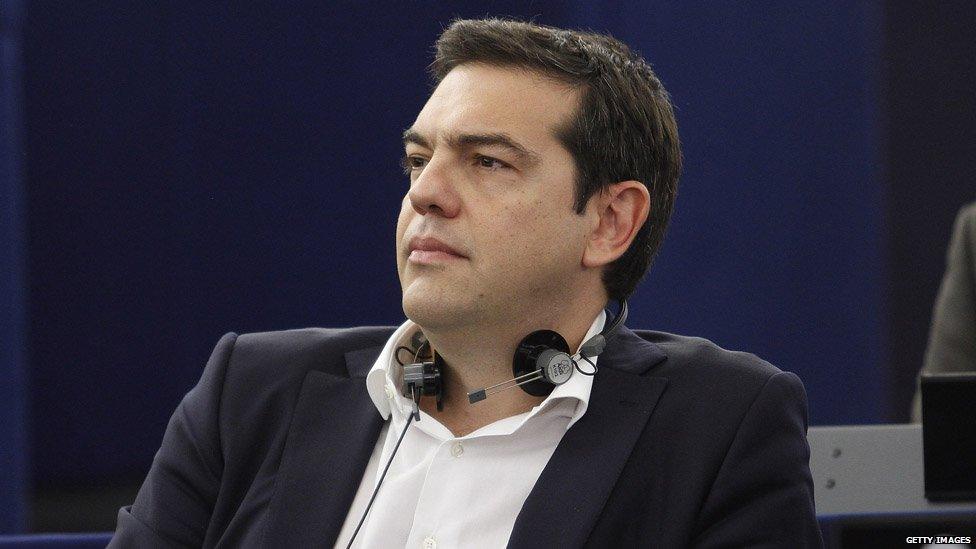Athens capitulates to creditors
- Published
- comments

Not for the first time over the five years of Greece's euro crisis - or the eurozone's Greece crisis - I am confused.
My confusion stems from the proposals for tax, benefit and economic reform submitted by the Greek government to secure, at the very last minute of the last hour, a deal from their creditors to avoid tumbling out of the euro.
Having obtained a copy of this paper, headed "Greece: Prior Actions - Policy Commitments and Actions to be taken in consultation with the EC/ECB/IMF staff", it feels very familiar.
That familiarity stems from its great similarity to the bailout proposals put to Greece by the creditors - the eurozone governments, the European Central Bank and the IMF - last month.
Pretty much everything wanted by the creditors is there - with the odd tweak or softening, but nothing which looks as though it ought to be noxious to them.
So there is a pledge for budget surpluses rising in steps to 3.5% of GDP or national income by 2018; VAT would be raised to three rates of 23% (the standard rate), 13% (for food, energy, hotels and water) and 6% (for medicine and books) - increases that would raise revenue equivalent to 1% of GDP; and Athens is eating the dust of comprehensive reforms of pensions to make them more affordable; and so on.
So here's why I am a bit baffled.
Only a few days ago the Greek prime minister Alexis Tsipras won an overwhelming mandate from the Greek people, in a referendum, to reject more-or-less these bailout terms.
And today, on the back of that popular vote, he is signing up to the supposedly hated bailout.
This is big politics that would make Lewis Carroll proud.
Does that mean the eurozone can go back to life as normal, of inadequate economic performance but Greek Armageddon deferred (again)? Is a rescue done and dusted?
Not yet.
Tsipras has to get these proposals through the Greek parliament today - though his pax of earlier this week with the main opposition parties will surely deliver that (at the price of the splintering away of some of his own supporters).
Then there is the small question of whether eurozone ministers will stump up the 35bn euros requested by Greece from the European Stability Mechanism to meet debt repayments through to June 30 2018.
And Athens wants a nod that there'll be proper negotiations on reducing its completely unaffordable debt burden by around 30%, as per the IMF's recent sustainability analysis (which would be achieved through the backdoor route of rescheduling repayments closer to the end of time, rather than through the direct write-offs that so offend Germans and east Europeans).
Finally, and most problematically, something has to be done to take the banks out of intensive care. Given the recent melting down of the Greek economy, my sources tell me there is now a solvency problem for Greek banks, to add to the awkwardness for them that they are almost out of cash.
Here is the point. If a way isn't found to allow the banks to re-open within days - and the ECB simply maintaining Emergency Liquidity Assistance won't come anywhere near to achieving that, but the ECB has lost all appetite for throwing more good money after bad - the Greek economy will implode so that any bailout deal agreed this weekend will become irrelevant in weeks.
Because the Greek economy would be so melting down that tax revenues would collapse and Athens would need yet more eurozone handouts. Greece and the eurozone isn't yet fixed, not even close.